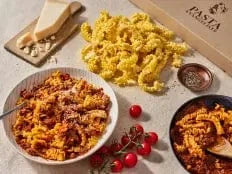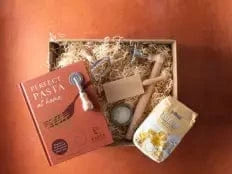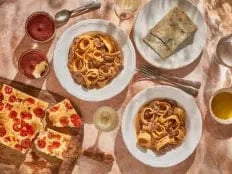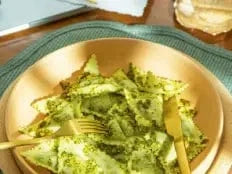: invalid url input)
Ask any Italian how pasta should be cooked and you’ll receive the same response: al dente. This traditionally Italian term has spread across the world, and you’re now unlikely to read a pasta recipe that doesn’t feature the words “cook pasta until al dente". But what does it mean?
What’s the meaning of al dente?
Literally translated as ‘to the tooth’, al dente is an Italian term used to describe the ideal consistency of pasta (and rice) when cooked. Al dente pasta is firm when bitten without being hard or chalky. Italians call pasta that has been cooked until soft ‘stracotto’ (overcooked).
That said, there is a scale of al dente, and it is possible to overdo – or rather underdo – this approach to the point where the pasta is chalky and hard to digest (in Italian this is known as ‘molto al dente’). To avoid pasta that is either too soft or too hard, you've got to strike a balance.
How to cook pasta al dente
Cooking pasta al dente is an Italian obsession. But whilst Italians agree on the principle of al dente, in practice the level of al dente can vary from region to region, house to house and cook to cook.
Regardless of where you sit on the al dente scale, the general idea is to cook your pasta for slightly less than the recommended cooking time. For example, if you’re cooking dried pasta (pasta secca) then a good rule of thumb is to cook the pasta for 2 minutes less than the packet instructions, before fishing out a piece of pasta and tasting. If the pasta is firm but not chalky, then it’s ready to be drained. Some packets of dried pasta will specify an ‘al dente’ cooking time – which can usually be trusted to deliver good results – but it’s still worth testing the pasta while it cooks.
When cooking pasta fresca (fresh pasta) be careful not to cook it for too long. Fresh filled pasta often takes as little as two minutes to be cooked to perfection, and if you leave it in for much longer than this, it can become soggy and limp (and can even disintegrate entirely). Here we also recommend that you test a piece after a couple of minutes of cooking, to avoid overdoing it. Though do note that some types of fresh pasta, for example trofie and orecchiette, may take a little longer to cook.
For more specific information about how to make sure you perfectly cook your pasta, do take a look at our helpful guide which talks about all the different elements that you need to consider.







